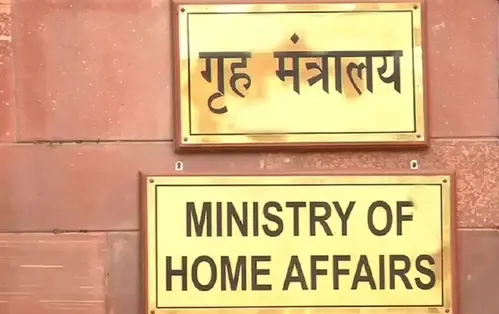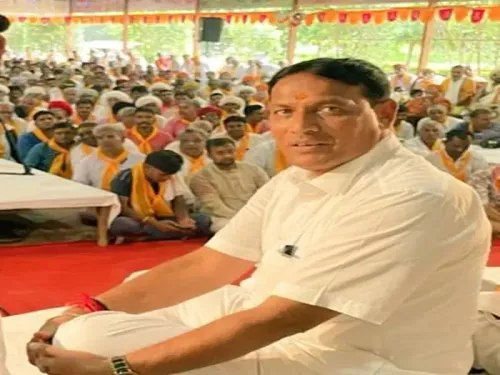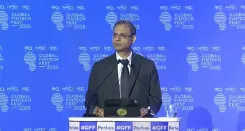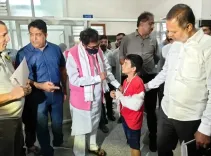Are Foreign Influences Behind the Missionary Racket in India?

Synopsis
Key Takeaways
- Indian intelligence agencies are uncovering foreign links in missionary activities.
- Conversion mafias have been busted across multiple states.
- These networks are involved in intelligence gathering and anti-India propaganda.
- Many foreign nationals exploited business and tourist visas.
- The situation highlights the need for vigilance in safeguarding national security.
New Delhi, Oct 8 (NationPress) Indian Intelligence agencies are uncovering evidence that numerous missionaries in India are being exploited by Western powers for intelligence collection and promoting an anti-India agenda.
In recent months, several conversion mafias have been dismantled in Uttar Pradesh, Madhya Pradesh, Maharashtra, Odisha, and Meghalaya. Investigators discovered that foreign tourists and individuals on business visas were implicated in these illicit activities.
Investigations revealed that these individuals targeted marginalized populations by offering free healthcare and education. While conversion was a significant aspect of the scandal, agencies are increasingly concerned that victims may have been used for intelligence operations.
Moreover, it was uncovered that false propaganda was disseminated through these individuals, consistently promoting anti-India sentiments. After ensnaring these individuals, the perpetrators would leverage them to spread their deceptive narratives.
Further insights into the operational methods emerged following the arrest of US national James Watson (58) in Bhiwandi, Maharashtra. Watson, the offspring of a retired US Navy officer, is part of a larger network implicated in this scheme, as revealed by the Intelligence Bureau, which is also involved in this investigation.
The techniques employed were advanced, supported by a structured network facilitating this crime. So far, the probe has identified that the primary targets were tribal communities, with those ensnared being used to further infiltrate the network.
According to an official, this is not merely a case of conversion. Various other elements are involved, including intelligence gathering by these actors. In certain instances, it has been discovered that the overarching goal was to shift voting patterns in tribal regions, achieved through brainwashing with anti-India propaganda.
Efforts were also made to incite animosity towards the government among these individuals to alter voting outcomes. The module dismantled in Bhiwandi was linked to operations in Odisha, Karnataka, Madhya Pradesh, and Meghalaya, indicating a vast syndicate at work.
Most foreign operatives involved in this scheme entered India as tourists or businesspersons, utilizing these roles as facades, while many are connected to these operations.
Similar networks have been eliminated in Punjab, where the racket is particularly pervasive. In Punjab, conversions predominantly occurred through Masih practices and baptism. The local Sikh community has repeatedly protested against such widespread conversions, yet the mafia appears too entrenched to dismantle easily.
The challenge in Punjab lies in the fact that despite local opposition, a significant number of individuals support this mafia, resulting in resistance.
Alongside these conversion mafias, agencies are also investigating incidents of visa misuse, revealing nearly 250 such cases over the past five to six years.
These revelations follow closely behind the Uttar Pradesh police dismantling a conversion module operated by Chhangur Baba. The investigation has revealed that he received funding from Dubai, the US, and Canada. This module was closely associated with the banned Popular Front of India and engaged in extensive conversions.
Historically, this mafia focused primarily on tribal areas and northeastern states, but they have now begun to expand their influence into other regions, including Tamil Nadu.
While conversions have always raised concerns, the new methods being employed have triggered alarms. It is now evident that these activities extend beyond mere conversions to include intelligence gathering, attempts to destabilize the government, and shifts in voting behavior.









